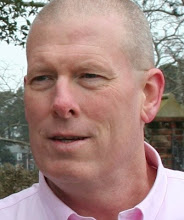The Chicago School 2: Mainly Milton Friedman
Second session of "Revisiting the Chicago School," Notre Dame, September 14-15, 2007.
The first presentation in this session was by Beatrice Cherrier. Her doctoral research involves a comparison of the ways in which Milton Friedman, Gunnar Myrdal and Jacob Marschak understood the relationship between their scientific work as economists and their involvement in political advocacy. Claims by Friedman and others that his scientific work was not influenced by, or a defense of, his political views are often doubted, and Cherrier takes as her task both the attempt to understand how Friedman might make such a claim, and how, in a manner consistent with that claim, a relationship between the two might be sustained.
Those familiar with hermeneutic theory will recognize Cherrier’s task as one which simultaneously takes the interpretative framework of the author on its own terms and attempts to construct a meta-interpretative framework which allows the historian to render consistent that which the author himself does not see as consistent. Friedman claims that his science and politics were separate spheres. How could that be? What overarching framework (Cherrier’s word is “worldview") could render that claim consistent?
Cherrier’s argument is that Friedman’s positive science and his political advocacy emerged simultaneously from a common set of experiences and events; in other words, his politics did not come first and his science second, nor his science first and his politics second. The fact that science and politics were separate but inextricably woven together explains both Friedman’s claim that they are separate and their necessary connection. Explaining the relation between his science and his politics requires a complex understanding of the interconnections between his scientific, methodological and ethical commitments, which may transcend his science and his politics.
I was initially hesitate about Cherrier’s use of “worldview” talk because of my previous history with the use of the term, but was impressed with her ability to weave a complex story about the relation between a person’s science and politics by it. I particularly liked her use of an argument by Roger Backhouse that methodology often provides the channels by which ethical and political values enter science. I would add that the reverse is also true. My one suggestion would be that Cherrier ask to what extent her analysis assumes that Friedman’s work is a consistent whole, and that one can move with relative ease across the span of his work as if the author understands all of these relationships ahead of time. My frustration with “worldview” talk in the past emerged from precisely this point: the “historian” tied together all the connections and implications of an author’s work after the fact, not accounting for the reality of the person’s life, in which the connections and implications are figured out and discovered as the person went along. Perhaps the person’s expressions of the underlying “vision” were occasional moments of insights? I am not accusing her of falling prey to Quentin Skinner’s “mythology of coherence,” only suggesting that it might be an issue she should pay attention to.
The second presentation at the session was by Robert Leeson. Robert is in the process of producing a multivolume collection of Friedman’s writings. His presentation was largely an outline of the collection and a set of questions about both the collection and a potential biography of Friedman.
The question he raised about the biography of Friedman was an interesting one. Could a multi-author biography of a person be produced that would have some intellectual cohesion? The response of the conference participants was one I shared: the “art” of biography is an individual art, and the biographer in many ways “creates” her subject by the act of writing about him.
That said, the Pulitzer Prize for Biography has been given several times to co-authored biographies (of de Kooning, Jackson Pollock, Julia Ward Howe) and even once to a multi-volume biography of George Washington which was started by one biographer and finished by a team of two others. However, no other biographical prize in the English-speaking world has been awarded for a book authored by more than one person.
So I’ll turn Robert’s question to those who read this: is it possible for a multi-authored biography of a person like Milton Friedman to be written that would have integrity as a biography, and not simply a set of essays about the person’s work and life?
Labels: Chicago economics, Chicago School, Chicago School of Economics, Friedman, Milton Friedman, University of Chicago

